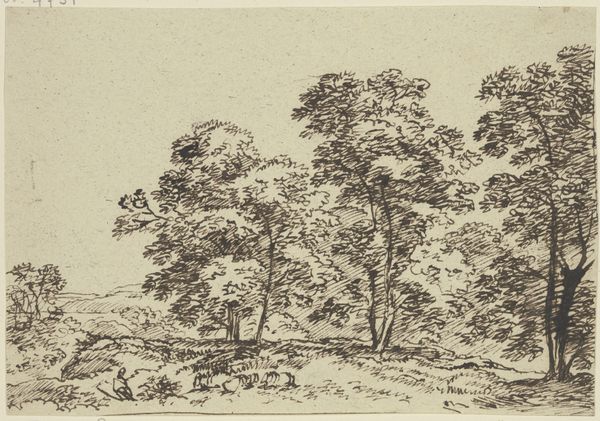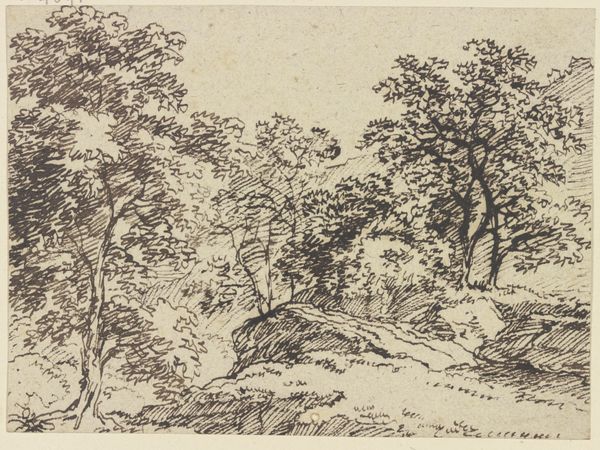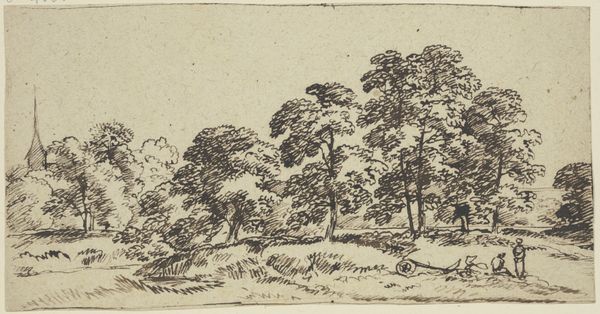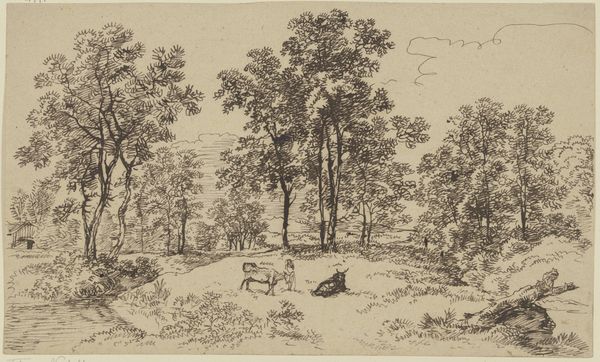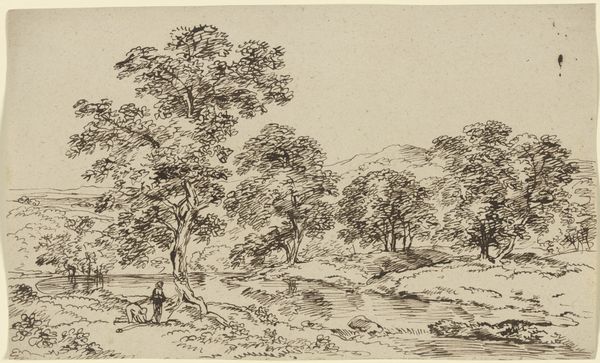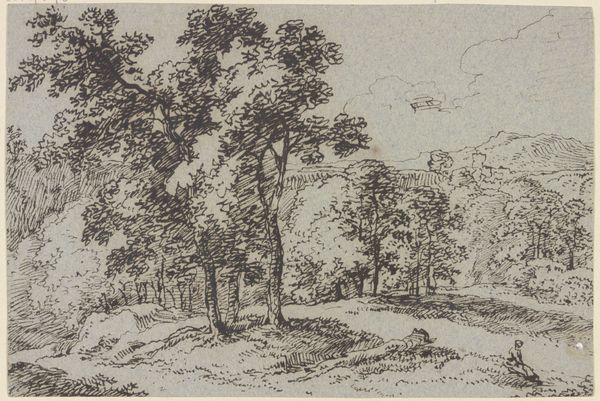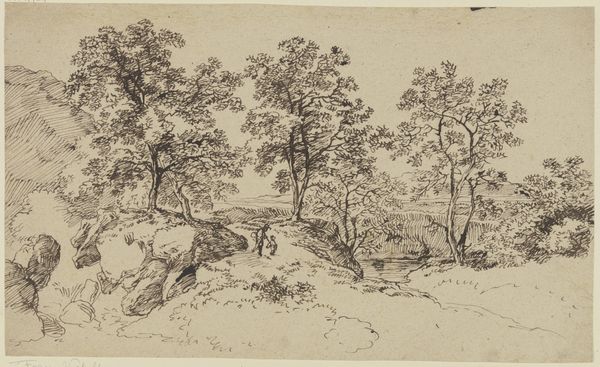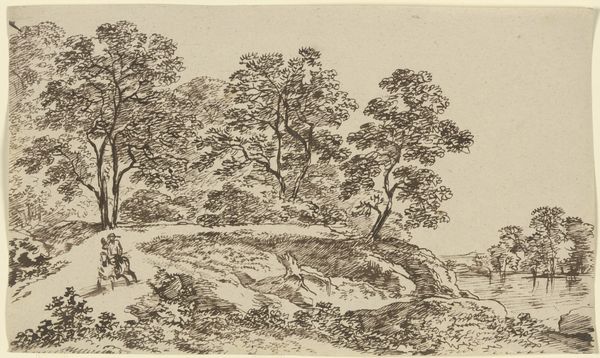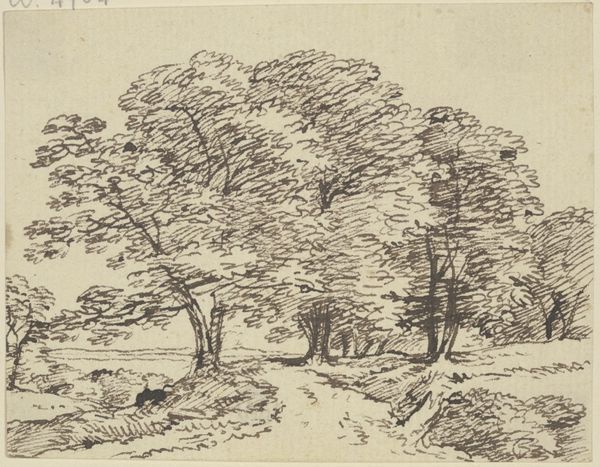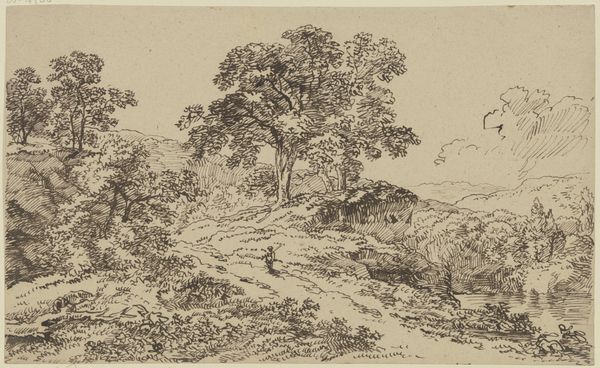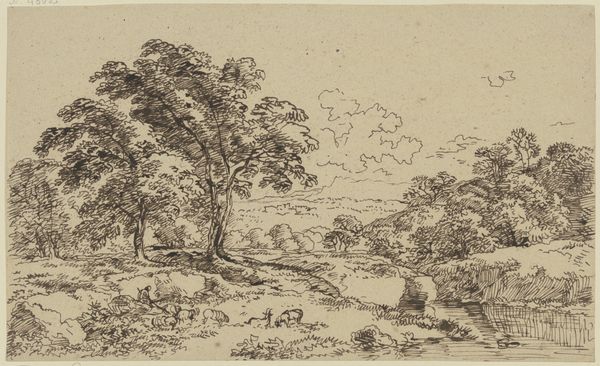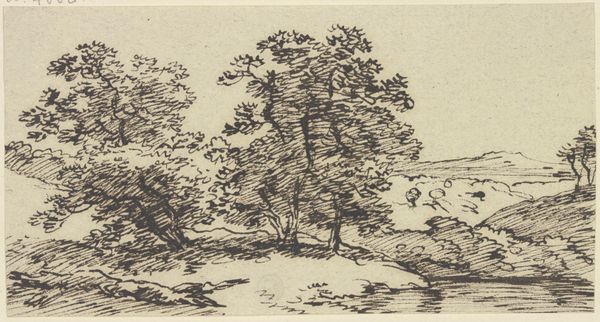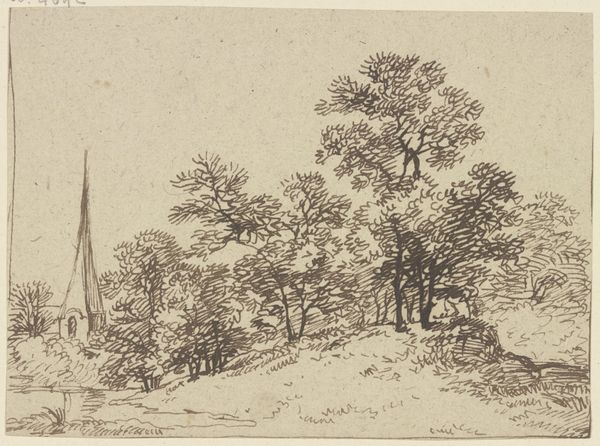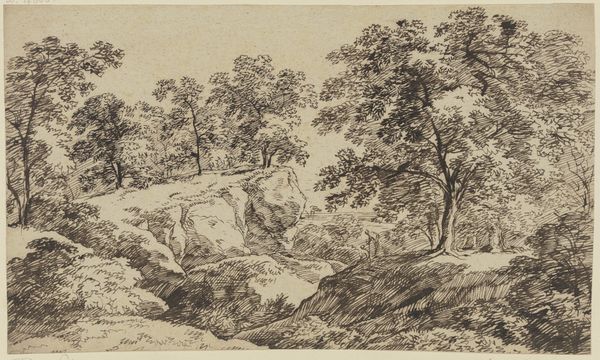
drawing, etching, ink, pencil
#
drawing
#
pen sketch
#
etching
#
pencil sketch
#
landscape
#
etching
#
ink
#
pencil
#
15_18th-century
#
realism
Copyright: Public Domain
Editor: Here we have Franz Kobell’s "Group of Trees with Staffage," made with pencil, ink, and etching techniques. It feels like a fleeting moment captured. The figures almost blend into the landscape. What historical context should we consider when viewing this piece? Curator: It's tempting to view landscapes like this as purely aesthetic, but let’s dig a bit deeper into what landscape representation *meant* in the 18th century. Landscapes, particularly those incorporating figures, served to project ideologies about land ownership, social hierarchy, and the relationship between humans and nature. Kobell was working during a time when ideas of the "picturesque" were gaining prominence – how might this relate? Editor: The picturesque? Is that the emphasis on nature, but in a slightly composed or idealized way? Curator: Precisely. Think of it as a curated version of nature designed to evoke specific emotions. Artists like Kobell were often commissioned by landowners to depict their estates. In what way could images like this one support the claims and public image of nobility at that time? Editor: Perhaps the serene setting implies that landowners are beneficent stewards of their domain, creating peace and beauty… It becomes propaganda, of a sort. Curator: Indeed. The inclusion of staffage, those figures you noted, are often carefully placed to imply a social order within this constructed Eden. The scale difference alone – note how they’re dwarfed by nature – could reflect their relative importance in society. This links it all back to patronage: landscape as an affirmation of power and a negotiation of social roles. Do you see how even an innocuous "group of trees" carries a political charge? Editor: Definitely. I’ll never look at a landscape the same way again! Thank you for helping to see past the surface tranquility. Curator: My pleasure! Remember, art doesn’t exist in a vacuum. Examining its social function can reveal so much.
Comments
No comments
Be the first to comment and join the conversation on the ultimate creative platform.
